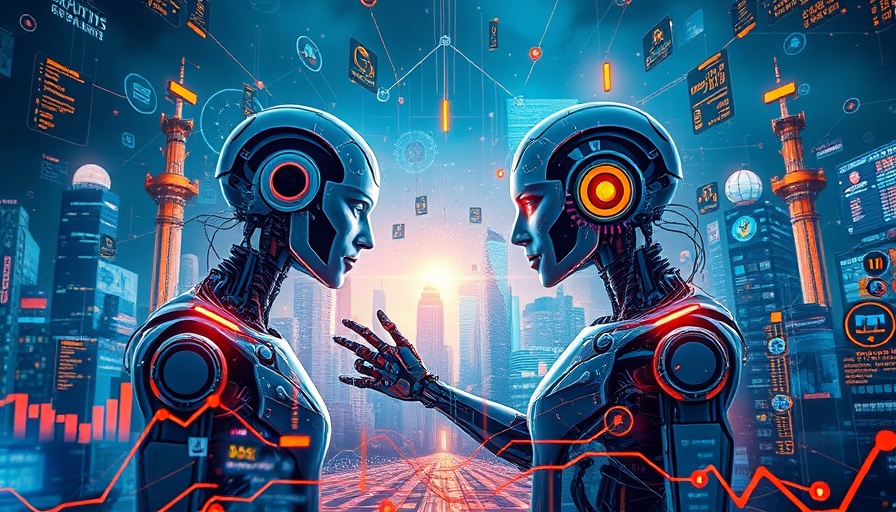
The Future of Work: AI's Impact on Employment
The rise of artificial intelligence (AI) is not just reshaping the way we work; it poses a significant risk to job stability. Such advancements might result in an unemployment rate increase of 10-20% over the next five years, according to insights from Anthropic's Economic Futures Program. As AI technologies gain traction, businesses and workers alike find themselves at a crossroads: adapt to new paradigms or risk obsolescence.
Reskilling and Universal Basic Income: Safety Nets for the Future
In light of potential job displacement, the authors of the Economic Futures Program stress the pressing need for reskilling initiatives. This need reaches far beyond tech-savvy individuals; it calls for comprehensive policy adaptations, including concepts like Universal Basic Income (UBI). By ensuring a financial cushion for those affected by automated job roles, society can ease the transition and foster resilience in an ever-changing job market.
Decoding the AI Investment Landscape
For those looking to capitalize on the future, Anthropic’s program emphasizes expanding into sectors that align with this new reality. Education technology, ethical AI, and policy consulting are highlighted as burgeoning fields ripe for investment. Companies like Coursera and Udacity present innovative pathways for growth, offering the tools needed for the workforce of tomorrow.
Ethical AI Governance: Building a Trustworthy Ecosystem
A fundamental aspect of the discussion around AI is the ethical governance of these technologies. As AI becomes ingrained in daily life, establishing guidelines that prioritize safety and fairness is non-negotiable. This necessitates dialogue among technologists, policymakers, and the community to foster trust and shared benefits from AI's evolution.
Diverse Perspectives on AI Job Market Dynamics
While forecasts about AI's impact on employment carry an air of inevitability, they also face skepticism. Some argue that historical trends often show new technology creating jobs even as others are lost. For instance, the rise of the internet led to the decline of certain job types but also created entirely new industries and roles. Thus, while preparing for potential challenges is crucial, it is equally important to remain open to emerging opportunities.
In conclusion, Anthropic's Economic Futures Program offers a comprehensive framework for understanding and adapting to the AI-driven changes that lie ahead. By pushing for reskilling, encouraging ethical investment, and fostering a responsible approach to AI governance, we can reshape the narrative of AI's economic impact into one of resilience and opportunity. Now is the time to engage in proactive conversations about how we can navigate this shift together.
 Add Row
Add Row  Add
Add 




Write A Comment